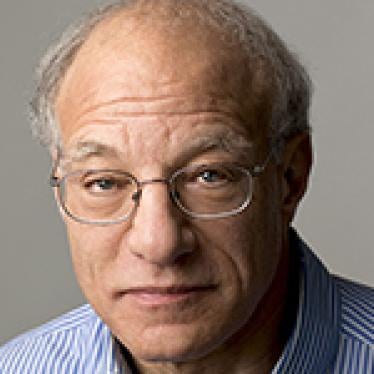Diplomats, judges, lawyers, human rights activists and members of nongovernmental organizations are currently marking the 10th anniversary of the completion of the treaty that established the International Criminal Court. The court's creation was an extraordinary step in extending the reach of law to those responsible for the mass slaughter of civilians and the use of rape as a weapon of war.
But what may not get much mention during the celebrations are the difficulties the court has encountered in making arrests. The ICC has no police unit to execute its warrants. It is totally dependent on the assistance of governments - sometimes the very governments that are linked to the crimes charged. And unlike other tribunals, the ICC is mandated to investigate crimes that are committed during ongoing conflicts.
This is a distinction with consequences that may have undercut the ICC's effectiveness. The court's "real time" mandate means that it investigates crimes even as other important diplomatic objectives like peace negotiations or the deployment of peacekeeping forces are underway.
The result: Some in the diplomatic community are suggesting that the quest for justice can prove to be an obstacle to peace. Already, this has diminished the robust diplomatic and political support the ICC needs to succeed. Both the United Nations itself and individual governments have dragged their feet when asked to act forcefully in pressing for arrests.
For example, when members of the UN Security Council traveled to Khartoum in June 2007 for meetings with the Sudanese leadership, the Council failed to include Khartoum's blatant obstruction of the ICC's arrest warrants in its talking points - even though the Council itself had requested that the International Criminal Court investigate the situation in Darfur.
UN officials apparently feared that mentioning the ICC's arrest warrants would deepen the Sudanese leadership's opposition to the much-needed deployment of UN peacekeeping forces in Darfur. Sudanese officials took note of the silence and responded with emboldened resistance not just to the ICC warrants but also to the prompt deployment of peacekeeping forces and the unfettered delivery of humanitarian assistance. (Indeed, Khartoum gave one of the two ICC suspects, the minister for humanitarian affairs, more human rights responsibilities and released the other from custody.)
To its credit, on its mission to Sudan last month, the Council did raise Khartoum's repeated obstruction of justice as one of several pressing items. And on June 9, the Security Council adopted a statement calling on Sudan to cooperate with the international court.
But the tendency to jettison justice has not been limited to interactions between governments. There has been a similar impulse in UN dealings with the Lord's Resistance Army, an insurgent group that has ravaged northern Uganda for 20 years.
Led by Joseph Kony, the rebel group's trademark practice has been kidnapping thousands of children and turning the boys into child soldiers and the girls into sex slaves. Prodded in part by arrest warrants issued by the ICC for him and his senior commanders, Kony agreed to take part in peace talks. But he insisted that lifting the ICC arrest warrants was a condition for obtaining his signature on an accord.
The UN Security Council was reportedly ready to succumb to the Lord's Resistance Army's demands by suspending the ICC warrants if Kony had signed an agreement, but he failed to appear. It turns out that the rebel group used the talks as a screen to beef up its depleted ranks, spreading havoc across three African countries as it abducted more children.
Other courts have faced similar difficulties. For example, a warrant issued by a joint UN-Sierra Leone court for the arrest of Charles Taylor when he was president of Liberia got nowhere because he was involved in peace talks to end the country's civil war.
Incidents like these should bring home an important lesson: Downgrading justice to achieve other objectives does not work well. It undermines the rule of law and slights the victims of injustice. Moreover, a peace based on impunity is unlikely to be durable. The peace-justice nexus must be examined carefully and objectively because the issue will surface again and again.
At events marking the ICC treaty's 10th anniversary, diplomats need to do more than congratulate themselves for having done the right thing 10 years ago. They must align peace negotiations with the commitment to justice articulated when the treaty was first codified in Rome. They must work to manage the short-term tensions that can occur while pursuing peace negotiations without denigrating justice.
Richard Dicker is director of Human Rights Watch's international justice program.
|
Commentary
When Peace Talks Undermine Justice
Published in:
The International Herald Tribune
Your tax deductible gift can help stop human rights violations and save lives around the world.
Region / Country
Most Viewed
-
November 25, 2019
A Dirty Investment

-
June 3, 2025
“They’re Ruining People’s Lives”

-
January 25, 2024
“We’re Dying Here”

-
December 21, 2023
Meta’s Broken Promises

-
February 19, 2018
“All We Want is Equality”




